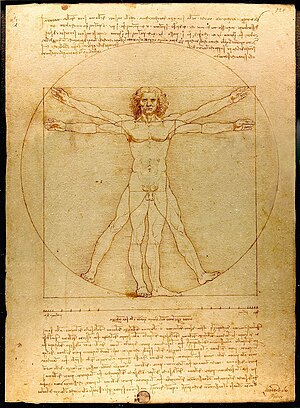I've noticed this over the last couple of weeks; i just watched all three episodes over the last two days; i hope to watch it a few more times before commenting. It is part trying to make Islam interesting to the modern world after the whole terrorist stuff; but, the majority is pretty good in terms of showing the scientific history of the Arabic cultures during the Medieval period; while Christian europe was in a dark ages(yes, they were; they had to rediscover Euclid's Elements, Apollonius Conics, the collective works of Archimedes, Diophantus, Ptolemies Almegest and so on and so forth; hence, they went through a dark ages). It gets better as it goes. At the end, he says some stuff I thought was interesting which I just want to go over through my mind somemore before trying to put my thoughts down on paper.
---------------------------------------------------------------------------------------------------------------------
Jim Al-Khalili argues that the Muslims decoded the Egyptian language long before the Rosetta stone. Whether they did or not matters little in my opinion. The effort to translate as much knowledge of all surrounding cultures interests me more. The Greeks also went around taking in all the surrounding cultures knowledge - both mathematics and mythology. I've argued on this blog that this mixing of mathematics and mythology led to christianity. Mathematics sticks to facts and logic, or what can be proved under certain axioms. Mythology tends to evade the issue - sometimes by refusing to look through the telescope figuratively speaking! Dictators tend to use mythology to say they get to rule by divine right. This series tends to avoid the fact that early Muslims destroyed the last remnants of the Library of Alexandria around 600 A.D. Mythology tends to not want to progress when new facts and logic comes to the attention(even despite the episode 1 above having a Phd saying Islam does, or did). The facts of the downfall of Islam after like 1200 is not crystal clear. Jim doesn't mention anything of what happened in Andalucia. He does say something interesting though. He says that when printing came, the Arab language had to many symbols; so, English, French, German and other languages which could fit the printing press progressed in science much more than the Arab world. However this may be, Arabian science, mathematics stopped progressing far earlier than the 1400s.
There's more to be said about the analogies between the Greeks and the medieval Arabian culture. But, I want to point out another analogy between the Arabs of the Medieval period - a comparison t the Byzantines. The Byzantine's, after their initial building projects in the 500s, stopped doing anything. About all that was interesting was argueing over iconography and warfare. During this time, the Arabian culture was doing all the mathematical progress.
This is one picture of the inside of the Hagia Sophia. No picture can take it all in! Before you go in, there's doors that are like out of a Lord of the Rings movie; i really need to find a picture of these doors!
I found some pictures of the doors going into the main Hagia Sophia room. The Byzantine's also had these great aqueducts leading to cisterns; underground water reservoirs held up by underground rooms of arches.
Once again, after these aqueducts, cisterns, and the Hagia Sopha was built like around 500 A.d, that was it; the empire did nothing architecturally or scientifically; Islam was the only real shining light of the Medieval period(Venice actually didn't do too bad; but, as Jim in the video shows episode 3, Venice and Islam had commerce and trade with one another during this time).
I would argue that the mystics and mythologists grow jealous of mathematics and start rationalizing why they are superior to the mathematics that cann't solve everything in one go. Because the mythological mysticism is easier to comprehend(you don't really have to even comprehend it most of the time; most churches just say, if you pay us, you can come in and believe anything you want), they get more people; more people, more money, more power.
I've seen many different accounts of the decline of Medieval Arabian culture; nobody seems to know what happened. I'm not sure that Jim's explanation of the printing press making Islamic language obsolete adds up to why they stopped progressing. I'd go back to the Greek comparison. The Greeks had a great idea of deductive logic and geometric algebra. Once they had done their thing, they were done. Similarly, some Arabian intellectuals hit on symbolic algebra; once they had done that work about as far as they could, they were done.
I'd like to bring up that 99% of people born in a given culture end up believing and speaking that cultures language and thought. Few people criticize and think; if your born in a christian culture, your a christian; if you're born in a Arab culture, you're a Muslim; if you're born in an Oriental culture, you're a Buddha, or Taoism, or Hindu. Some cultures are better at experiment; some in theory. Ideas get tranlated back and forth; what one culture couldn't do, the other does eventually.

.jpg/200px-HagiaSophia_DomeVerticalPano_(pixinn.net).jpg)
"Every trace of the old philosophy and literature of the ancient world has vanished from the face of the earth."
ReplyDeletehttp://www.pagrandlodge.org/district26/804/Definitions/saint_john_chrysostom.htm
Quoting this spartan website in full because it's hard to confirm this quote,
"Saint John Chrysostom
He was a the Catholic patriarch of Constantinople who is quoted as having celebrated the Christian Destruction of Knowledge of the Library of Alexandria under the leadership of Bishop Theophilius by proclaiming: "Every trace of the old philosophy and literature of the ancient world has vanished from the face of the earth." It seem that the leaders of the early Roman Catholic Church really hated learning and knowledge. Thankfully the Catholic Church has evolved and now has many wonderful institutions of learning. "